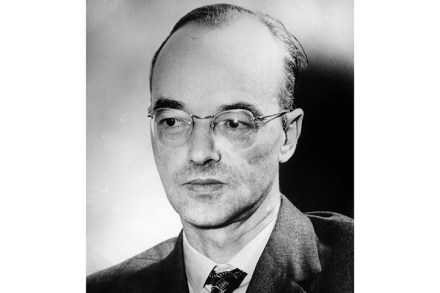The rabbit who came to stay
Is there a more perfect children’s writer for this generation than Judith Kerr? She started with a tiger — The Tiger Who Came to Tea, published in 1968 — and ended with a bunny, The Curse of the School Rabbit, before she died three months ago. Both books are pitch-perfect little masterpieces of their kind. The tiger was fantastical but also down-to-earth. The bunny is an entirely plausible creature: a school rabbit, Snowflake, kept by Miss Bennet. She uses him to teach children English (they write about Snowflake); maths (they measure Snowflake in inches and centimetres); and art (they draw Snowflake). Our narrator doesn’t care for Snowflake because he peed





















